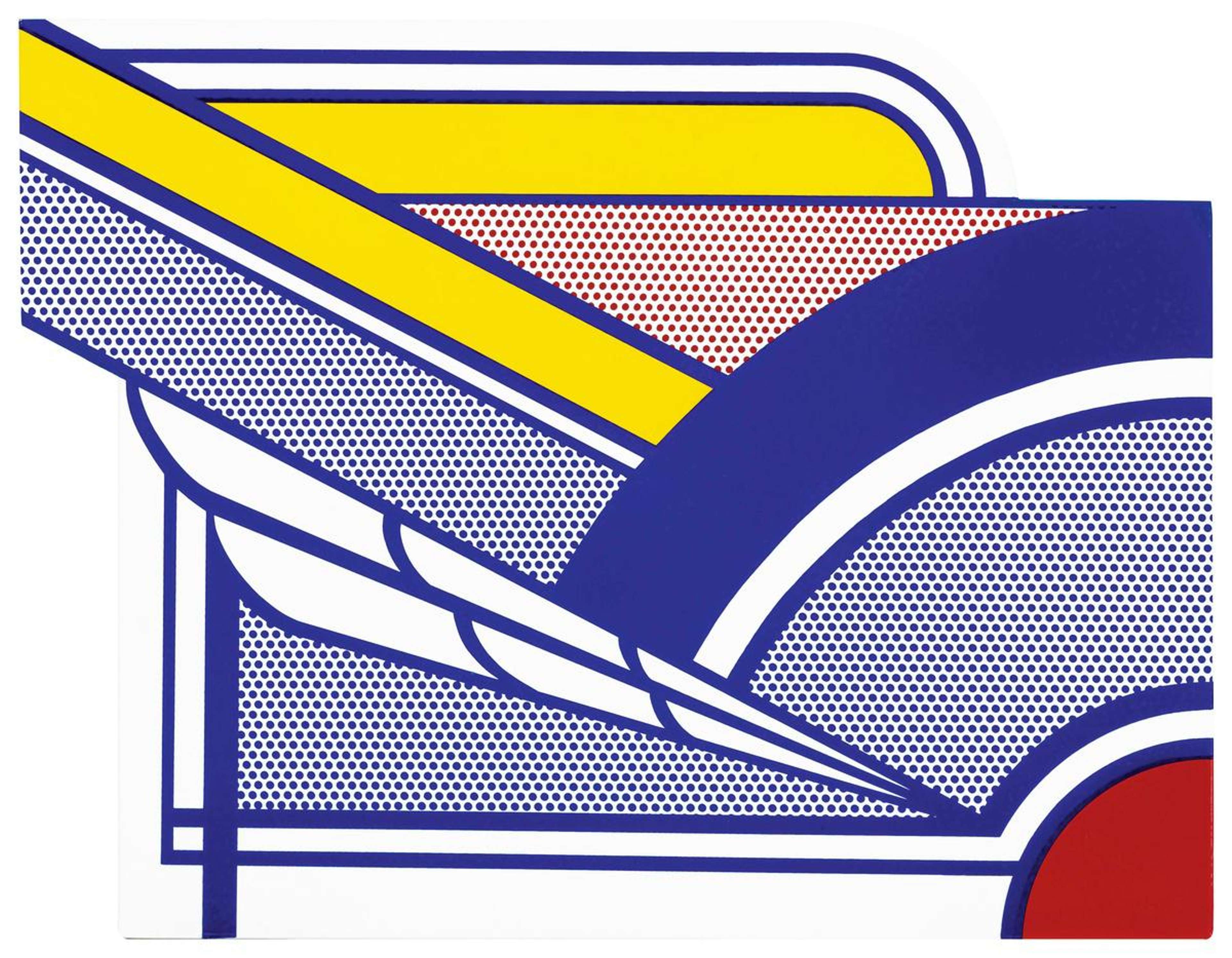
Modern Painting (porcelain)

Modern Painting (porcelain)
Signed Ceramic
Roy Lichtenstein
£260,000-£380,000
$520,000-$760,000 Value Indicator
$480,000-$700,000 Value Indicator
¥2,450,000-¥3,580,000 Value Indicator
€300,000-€440,000 Value Indicator
$2,690,000-$3,940,000 Value Indicator
¥53,990,000-¥78,900,000 Value Indicator
$350,000-$510,000 Value Indicator
There aren't enough data points on this work for a comprehensive result. Please speak to a specialist by making an enquiry.
88 x 114cm, Edition of 6, Enamel
Auction Results

Track auction value trend
Meaning & Analysis
Roy Lichtenstein’s Modern Painting depicts a closely cropped and superbly abstracted composition, bursting with slick shapes and vibrant colours.This is a rare multiple executed as porcelain enamel on steel. The work was created in 1967 and belongs to a signed and limited edition of 6.
Modern Painting devises a new configuration on Pop Art by staying within the parameters of Art Deco. Representing both a modern style and the look of a historical period, Lichtenstein compiles a selection of representative features in this print. Seeking to actively obliterate painterly gestures, the perfected shapes are connected through a smooth superimposition of vivid colours and calculated patterns.
Created concurrent with Modern Art Poster and Stedelijk Museum Poster, the work mimics the emblematic signage and printing methods used in newspapers and comic strips. The work manifests a middle ground between figuration and abstraction. As such, it precedes the artist’s Repeated Design of 1969 and Modern Print of 1971. Additionally, this closely cropped and superbly abstracted composition is also the forerunner of Lichtenstein’s two-part Industry And The Arts sequence of 1969.
The inflated geometric design is composed of a combination of purified colour fields and densely dotted streaks situated on a solid white support. Striking yellow, deep red, and royal blue dominate the schematic and streamlined forms. Lichtenstein’s enlarged dots manifest a mechanically reproduced perfection, enhanced by the entirely flattened picture plane. The image appears fractured and incomplete, provoking intrigue and tempting the viewer to pursue further investigation.